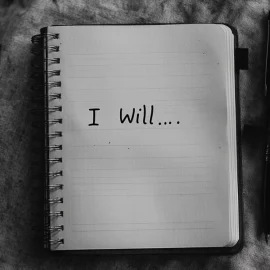

This article is an excerpt from the Shortform summary of "The Glass Castle" by Jeannette Walls. Shortform has the world's best summaries of books you should be reading.
Like this article? Sign up for a free trial here .
What is The Glass Castle setting? How does author Jeannette Walls use setting in her memoir to show how often her family moved and what happened where?
In The Glass Castle, moving constantly is a way of life. This means that in The Glass Castle, the setting is constantly changing, and also shows the chaotic life of the Walls family.
Read more about all of The Glass Castle‘s settings.
The Glass Castle Setting: The Wild West
Jeannette’s earliest memory is the day she caught on fire when she was three years old. Her family, which included Rose Mary; her father, Rex; older sister, Lori, and younger brother, Brian, lived in a trailer in southern Arizona. Jeannette was wearing a pink party dress and stirring hot dogs in boiling water. She had to stand on a chair to reach the pot.
Blythe, California
Blythe was a large town, with two movie theaters and as many prisons. The town offered more civilization than the Walls family was used to, but Rex and Rose Mary hated it. They thought desert towns should be small and dusty, not sprawling and teeming with people. Blythe, California is one of the settings in The Glass Castle during Jeannette’s early life.
The larger town meant different rules for Jeannette and her siblings. For the first time, they were required to wear shoes outdoors. They also had to go to school. Their assimilation was bumpy at first. Jeannette and her siblings could read ahead of their grade levels because of their lessons at home, and Jeannette quickly became a teacher’s pet. The other students took an immediate disliking to her.
One day, four Latina girls waited for Jeannette in the alley near their apartment and beat her up. When Rex saw her bruised and bloody, he acted proud, but Brian was livid. When the same girls waited for Jeannette the next day, Brian jumped out from behind a bush and swung a large tree branch to keep the girls away. The branch broke, and the girls surrounded Brian and beat him to the ground until Jeannette smacked one of them in the head with a rock.
A Las Vegas motel room served as Jeannette’s family home for a month before they did the skedaddle. The kids went to the casinos with Rex, playing tag or hunting for abandoned quarters in slot machines. Rex played blackjack, bragging that he had a system that was unstoppable. For a while, the system worked.
Rex took his winnings and bought everyone cowboy hats and vests with fringe. One night, after a particularly successful day at the tables, Rex took them to a restaurant. They each ate steaks and ordered a flaming ice cream cake for dessert. Rex said they were living the high-roller life they deserved.
A couple of nights after the flaming cake, Jeannette’s parents came back from the casino in a hurry. They said it was time to skedaddle again. The casino was on to Rex’s system, and they had to put as much distance as they could between them and the mafia hot on his trail. Her mother wanted to live near the ocean, so they headed for California.
San Francisco
Jeannette’s fascination with fire was the catalyst for another Walls family skedaddle shortly after arriving in San Francisco. Rose Mary didn’t want to stay in what she called “tourist traps” near the wharf, so the family found an affordable hotel in the Tenderloin District, where many of the residents were prostitutes.
The children were often left alone in the hotel while their parents went in search of investment capital for the Prospector. Jeannette found a box of wooden matches and took them to the bathroom. She built a mound of toilet paper in the toilet, set it on fire, and flushed only when the flames were lapping high out of the basin.
A few nights later, Jeannette woke up to a fire in their room. The curtains were flaming a few steps from her bed. Her parents weren’t there, and she couldn’t rouse Brian and Lori. The fire continued to grow, but suddenly the door burst open. Rex led them out of the room and across the street to a bar. Jeannette watched the fire through the bar windows wondering if all the fires in the world were connected. Was the fire that burned her connected to this fire? Was the fire still after her? She took on a new perspective about life. At any moment, your world could go up in a blaze. That truth never left her.
The Mojave Desert
After San Francisco, the family picked up and headed back into the desert. They stumbled across a small community called Midland and rented a two-room house surrounded by sand. In The Glass Castle, settings in the desert are frequent.
One night, Jeannette heard what sounded like a snake under her bed. She woke her father up. But Rex told her it was probably just a demon, the same one he’d been hunting for years. He made a game out of searching for the demon. They called it demon hunting. Rex told Jeannette all you had to do to get rid of a demon was to look it in the eye. Demon hunting became a frequent pastime from then on.
There were no trees or vegetation in Midland, and water had to be brought in for the residents. Not long after they’d arrived, Rosy Mary announced she was pregnant. She busied herself with her art while waiting for the baby to arrive. She painted, sketched, made sculptures, and worked on novels, plays, and a children’s book.
Rex, on the other hand, got a job digging rocks in a gypsum mine. He said as soon as the baby was born, they would move to the larger town of Blythe, California twenty miles away.
The Glass Castle Setting: Battle Mountain
Battle Mountain was one of the more pleasant settings in The Glass Castle for the Walls kids. Jeannette was around six years old when they arrived in Battle Mountain. The town didn’t seem like a mecca for gold. The community was pocket-sized, one street with a handful of buildings dwarfed by the expansive desert sky.
The Walls family moved into an old train depot in a part of town near the outskirts known as the Tracks. There was an old office upstairs that served as the parents’ room, and the kids slept in the old waiting area downstairs, benches still attached to the walls. Discarded items found in the desert were used as furniture. Old wooden cable spools became tables, crates became chairs, and cardboard boxes became beds. Rex and Rose Mary discussed trying to find beds for the kids, but they protested. Sleeping in the box was an adventure, the children said.
Making a Go of It
Rex found a job as a mine electrician, which regulated his time in a more positive way. He was up early, and when he came home in the afternoon, he played with the children. When he wasn’t around, Jeannette and Brian would go exploring in the desert. Jeannette became a collector of treasured rocks, such as turquoise and geodes.
With Rex working, they could afford to go out to eat Sunday nights. They went to the Owl Club, one of two casinos in town. They’d gorge on burgers and milkshakes and leave stuffed. There was also plenty of food at home. The mine included a commissary, and a monthly stipend for groceries and the rent amount were automatically deducted from Rex’s salary.
The Glass Castle Setting: Welch, West Virginia
Finally, one of the last settings in The Glass Castle was Welch, West Virginia. It took the Walls family a month to make it across the country when Jeannette was around eleven years old. The used car Rose Mary bought broke down frequently and wouldn’t go faster than twenty miles per hour. Finally, they rolled into the Appalachian Mountains. This is a major change in The Glass Castle setting.
The landscape was vastly different than anything Jeannette had ever seen. Instead of deserts and dry hills, they drove through rolling hills of thick forests. They pulled up to Rex’s childhood home and were greeted by their other grandma for the first time.
There’s No Place Like Home
Grandma Erma was an obese woman who smoked and drank almost as much as Rex. She greeted her son warmly, but she was rude to Rose Mary and short with the children. She told them to call her Erma, not grandma. In contrast, Grandpa Ted was old and wiry. He didn’t mind being called grandpa. Another man stepped forward and introduced himself as Uncle Stanley. He was missing teeth and was overly affectionate with Jeannette.
That night, everyone gathered around the coal stove for warmth and ate green beans and biscuits for dinner. The beans were mushy and so salty, Jeannette held her nose as she ate, as Rose Mary had taught her to do when eating food that was slightly spoiled. Erma smacked her hand away and told her beggars couldn’t be choosers.
Independence in New York City
In The Glass Castle, setting shows how Jeannette’s life changes. Jeannette woke up in the early morning hours her first night in New York and thought the city was on fire. She was staying with Lori at the women’s hostel. When she asked Lori about the fire the next morning, she learned it was just the city lights reflecting off the smog.
Jeannette found a job waitressing at a hamburger restaurant that paid her eighty dollars a week. She loved the crowds, the fast-paced activity of the staff, the discount on meals. Every day, she ate a cheeseburger with a milkshake.
The girls soon found an apartment in a less-expensive part of the Bronx. The whole of their Welch home could fit into the apartment, and for the first time, they had working appliances, like a refrigerator, gas stove, an indoor bathroom, and a bathtub. Although the apartment had nice furnishings, the neighborhood left a little to be desired. But rough neighborhoods were nothing new. Jeannette was mugged several times on her way home, but she always fought back.
One winter day, Maureen walked off the same bus from Welch and moved into Lori’s apartment. Brian was living in Midtown Manhattan by this point, and with his address, they found a good school for Maureen to attend.
With all the children together again, they organized weekend dinners at Lori and Maureen’s. They’d make big feasts and reminisced about their crazy life in Welch.

———End of Preview———
Like what you just read? Read the rest of the world's best summary of Jeannette Walls's "The Glass Castle" at Shortform .
Here's what you'll find in our full The Glass Castle summary :
- The author's unbelievable childhood as her absent parents went on alcoholic binges
- How Jeannette and her siblings escaped their parents to strike out on their own
- The complicated relationship Jeannette had with her parents before they died






